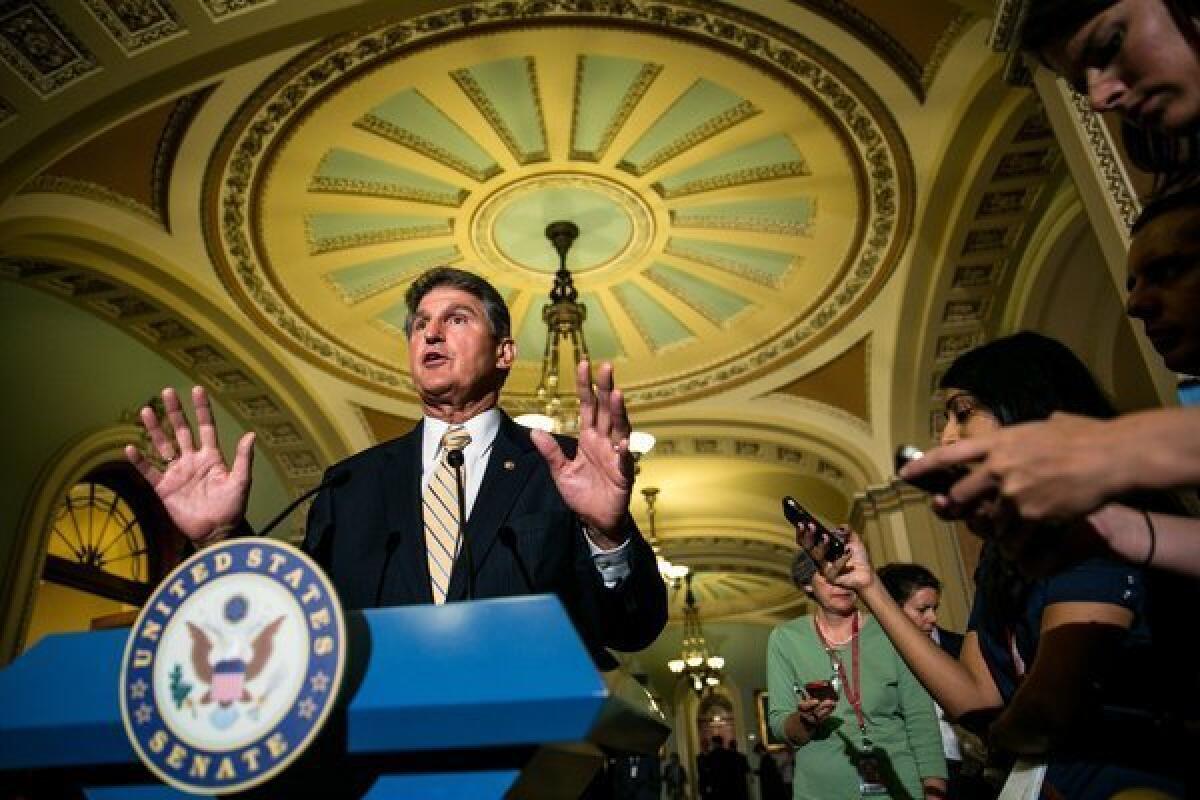A quick fix to the student loan mess

- Share via
Top Senate Democrats tried again Wednesday to push through a bill to extend for one year the just-expired 3.4% interest rate on some federal student loans. And predictably, the bill was blocked by a filibuster, with one Democrat and one Independent joining all 46 Republicans in opposition.
The two camps are divided over whether to adopt a stopgap solution or a long-term one that shifts from fixed to adjustable rates. That divide seems too wide to be bridged before low- and moderate-income students start having to take out loans at the new interest rate. So here’s a suggestion: a one-year bill based on the economics of the long-term fix.
Even President Obama has endorsed the idea of allowing interest rates for federal student loans to adjust annually in response to changes in the interest rate for Treasury notes. Tying the cost of the loans to the government’s borrowing costs makes sense over the long term. But liberal Democrats have split from their centrist colleagues and Republicans on some key details, including what sort of ceiling to place on the rates and whether to allow the rates on loans to adjust after they’re issued.
A possible compromise could be to enact a bill that offers loans under the framework proposed by Sens. Joe Manchin (D-W.Va.) and Richard Burr (R-N.C.), but just for the coming school year. That would increase interest rates from 3.4% to 4% for subsidized Stafford loans, but cut them from 6.8% to 4% for unsubsidized loans. The rate would be fixed for the life of the loan.
More than twice as many Stafford loans are unsubsidized than subsidized, and many borrowers take out both kinds of loans. So the benefit of a lower interest rate on unsubsidized loans would be broadly felt.
One potential deal-killer is the cost of using Manchin’s and Burr’s approach for just one year. The long-term version is essentially deficit-neutral, which means it requires no offsetting tax increase or spending cut. That’s a sharp contrast to the bill backed by Senate Democratic leaders, which would be paid for by raising taxes on inherited retirement savings accounts. If using Manchin-Burr only for the 2013-14 school year raises its price tag, it may no longer attract Republican votes.
My proposed compromise would also leave unresolved all the major points that have split the two parties, including whether to have adjustable rates and, if so, where to set the baseline. But at least it would keep interest rates low while the two sides time searched for a more durable deal.
ALSO:
Goldberg: Obama wings it in Egypt
Obamacare glitch may cost young smokers, spare older ones
Safest seats in an air crash: They’re not where you might think
Follow Jon Healey on Twitter @jcahealey
More to Read
A cure for the common opinion
Get thought-provoking perspectives with our weekly newsletter.
You may occasionally receive promotional content from the Los Angeles Times.










